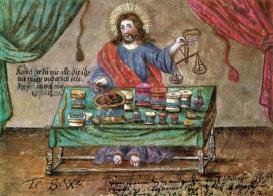This group explores the relationships between the projects and practices of Reformation broadly construed and developments in European academic medicine (both theoretical and practical), as well as non-university medical training, accreditation, and practice, between 1500 and 1700. Concretely, it investigates the dynamic interrelationships of medicine, natural philosophy, and theology in early modern medical texts.
To what extent were reforming Christianity and reforming medicine mutually supporting, intersecting, or parallel projects? What were the explicit and implicit issues in medical, philosophical, and theological sources on the possibilities of understanding and healing the human body and the soul-body relation? And how did the human soul became an object of medical knowledge and treatment?
In conversation with scholarship that has challenged the “conflict thesis” between religion and science, the working group explores the dynamic interrelationships between medicine, natural philosophy, and theology in early modern medical texts as well as the roles that the reformations of Christianity played, and did not play, in affiliating and demarcating the theoretical, practical, and methodological domains proper to theology, philosophy, and medicine.

